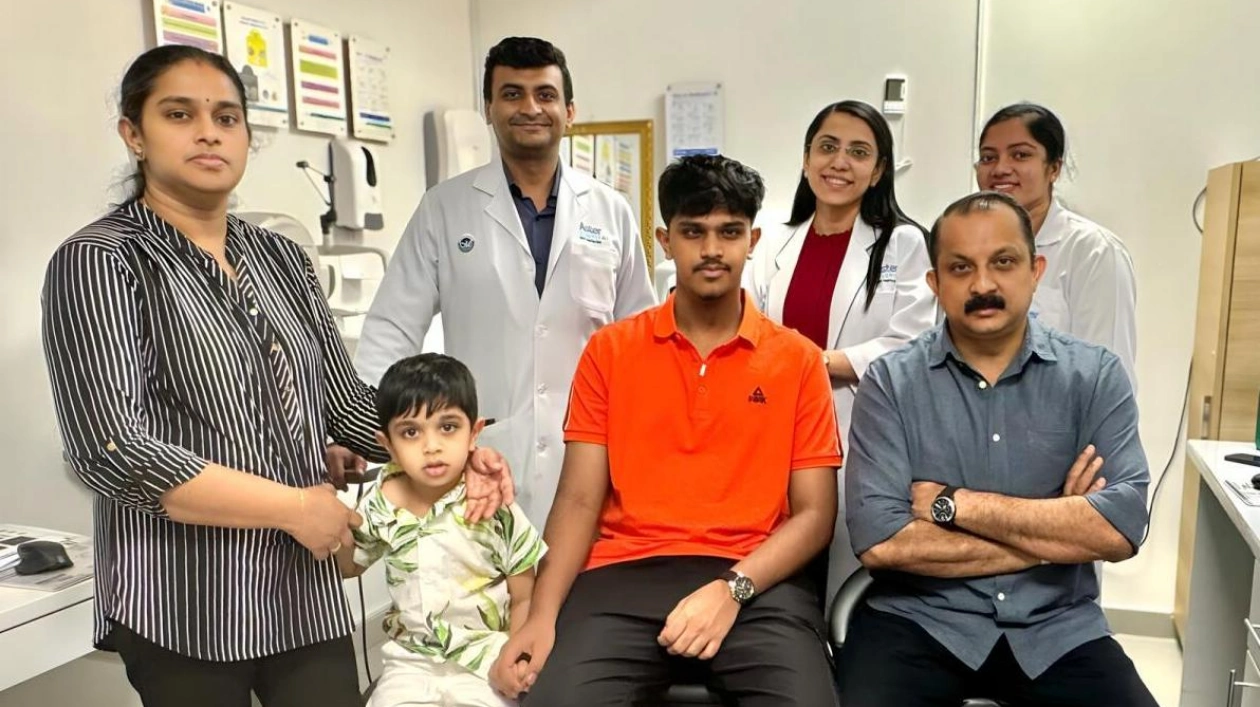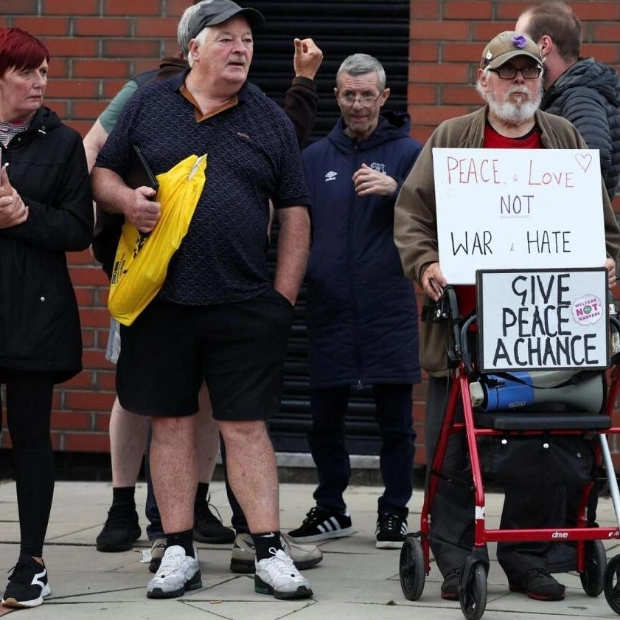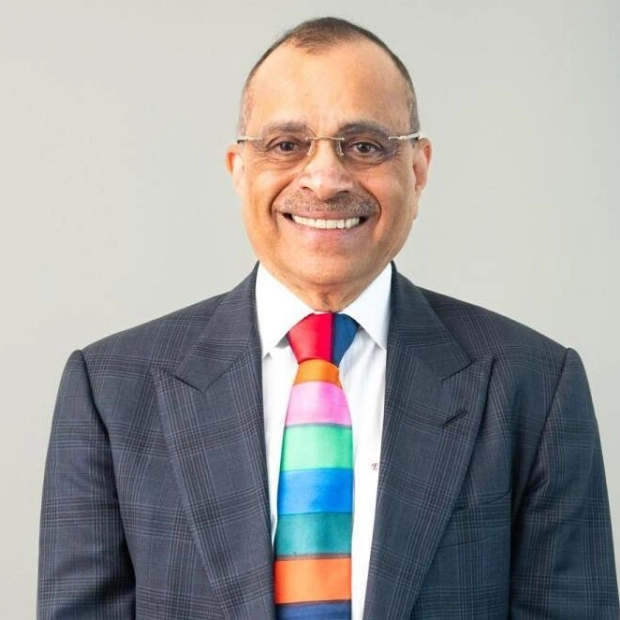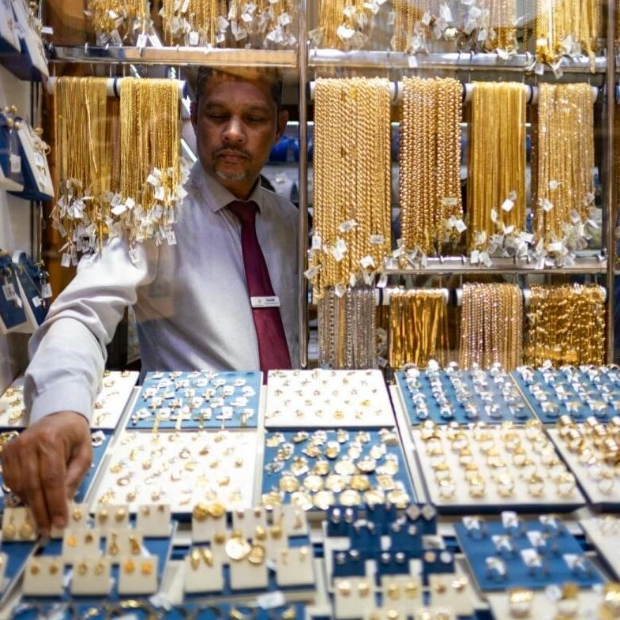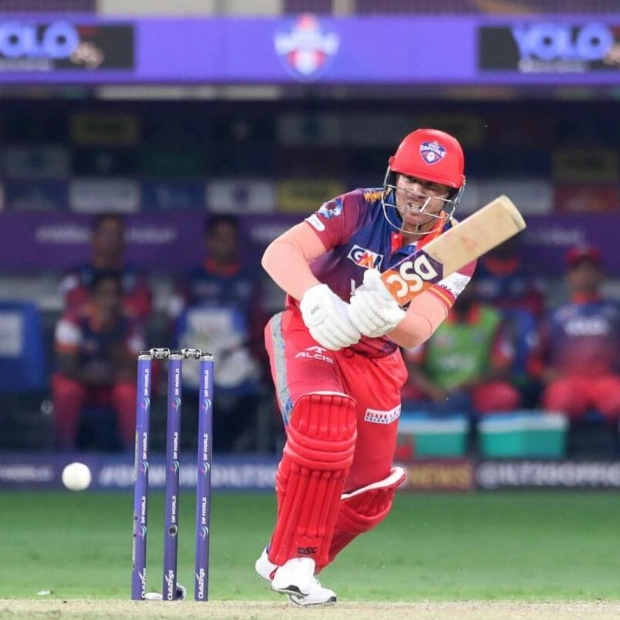When Greeshma Anoop received a call about her 15-year-old son Dhikshit's eye injury at school, she initially thought he might need eye drops for a few days. Little did she know that her son had been blinded in one eye and would require two surgeries and months of treatment to partially restore his vision. Dhikshit was hit in the right eye by a ballpoint pen thrown by a classmate, resulting in a deep corneal tear and a traumatic cataract, posing a risk of permanent blindness.
Dhikshit was taken to the hospital about 4-5 hours after the incident. Dr. Parth Hemantkumar Joshi, an ophthalmologist at Aster Hospital Mankhool, described the severity of the injury to Khaleej Times. "His cornea, lens, and vitreous were all injured. We explained to the parents the nature of the injury, the need for a two-stage treatment, and a recovery period of around four to six months with visual rehabilitation," Dr. Parth said. Cataract development following such severe eye injuries is common, occurring in up to 60% of cases.
Within hours, Dhikshit underwent the first surgery to stitch his eye. "The primary goal was to close the wound to prevent further infection and potential loss of sight, so we used stitches thinner than human hair," Dr. Parth explained. "The procedure was done under general anesthesia and took about 45 minutes." Dhikshit was then sent home to allow the stitches to heal for over a month. Greeshma described this period as one of the toughest for the family.
Once the stitches healed, Dhikshit returned for the second surgery. "After stabilizing the eye, we performed the second, more definitive procedure," Dr. Parth said. "We removed all damaged structures, including the lens and vitreous, and replaced them. The surgery took a little over an hour. We managed to save 75-80% of his eyesight, which was remarkable given that he had zero vision when he arrived." Dr. Gazala Hasan Mansuri, who assisted in the case, emphasized the importance of timely management of traumatic injuries to prevent disastrous outcomes.
Greeshma expressed gratitude for the medical team. "Dr. Parth detailed each procedure at every step," she said. "We briefly considered returning to India for treatment, but we trusted Dr. Parth." She also praised Dhikshit's resilience. "We were devastated, but he remained calm, which gave us strength. He insisted we continue working and not take leave to stay with him." On Monday, Dhikshit returned to school. "His teachers and classmates were thrilled to have him back," Greeshma said. "He's happy to be back but sad about missing the under-15 football tournament in October." According to Dr. Parth, Dhikshit will need glasses due to the injury, though he didn't before. "The corneal shape was altered, but his vision is improving. It's now at 80%, and we hope it will continue to improve over the next few months."
